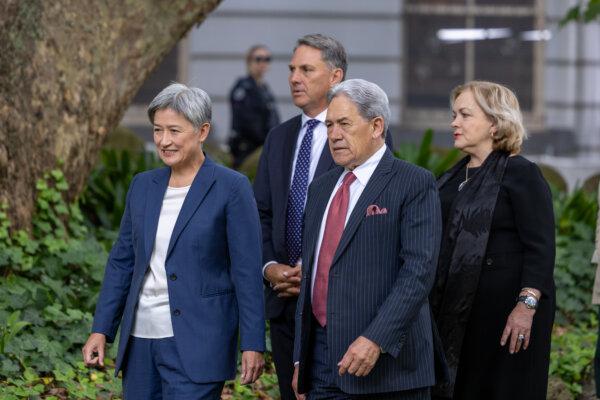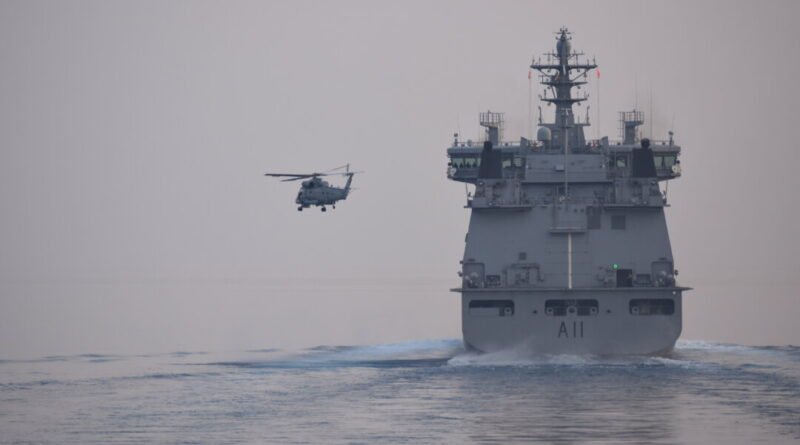New Zealand Labour Withdraws Support for AUKUS Alliance
The Labour Party has labeled AUKUS as “offensive warfighting alliance against China,” while NZ’s Defence Force struggles with old equipment and mass resignations.
The New Zealand Labour Party initially supported the government’s attempts to join the second pillar of the AUKUS pact but appears to have reversed its position, with both the foreign affairs and associate foreign affairs spokespeople characterizing it as unnecessarily aggressive posturing towards Beijing.
After a meeting between the Foreign and Defence Ministers of Australia and New Zealand at the end of January, Australia announced it would be sending officials to New Zealand soon for further talks.
The government, however, remains committed to the path set by the joint talks.
Attitude Turns Cold
The Labour party had previously adopted a similar perspective. When it was in power, then-Defence Minister Andrew Little expressed interest in exploring greater interoperability with Australia, particularly as both countries embarked on reviewing the state of their equipment.
The government also said it was “willing to explore” participating in Pillar Two of AUKUS, which focuses on developing and sharing military technology.
But the Labour Party has since given the clearest indication yet that its previous lukewarm support for AUKUS has gone decidedly cold.
Labour’s associate foreign affairs spokesperson Phil Twyford called the agreement an “offensive warfighting alliance against China,” questioning the government’s intention to be involved in a war with China on the side of the U.S.
Labour foreign affairs spokesman David Parker said Australian officials “will probably be trying to sell [AUKUS],” but that both the benefits and disadvantages must be looked at.

Beijing’s Assertiveness ‘Not Surprising’
Mr. Twyford appeared to defend Beijing’s actions in the South China Sea, which recently included deploying sonar in an attack on Australian naval personnel.
Labour Minister David Parker (L) speaks at a press conference with former Prime Minister Jacinda Ardern in Wellington, New Zealand, on Aug. 6, 2018. (Mark Tantrum/Getty Images)
Don’t Want Beijing as a Foe: Parker
“We don’t want to position China as a foe. We’ve got a good relationship with them. We don’t agree with them on everything and there are some things that we have quite different values on, including the rights of minorities, for example,” Mr. Parker said.
However, he did not explicitly commit Labour to a position of calling on the government to cease exploring the idea.
He said they were “questioning its utility and whether it is wise” because Labour “remain unconvinced that pillar two offers us anything new that we don’t already have” and an interoperable military could, and was, being achieved outside of it.
Because the government had not made a final decision, “we’re [also] not in a position that we need to take a final decision yet, but you can see that we’re expressing our concerns that it’s not necessarily in New Zealand’s national interest,” he said.
Ships Can’t Sail, Planes Can’t Fly
Despite Ms. Collins’ rhetoric, New Zealand is likely to become increasingly reliant on its allies—particularly Australia—because the government has told public agencies to cut spending by 6 to 7 percent at a time when much of its military equipment is at end-of-life and needs either replacing or expensive upgrades.
A case in point is the naval helicopter fleet, which will cost over $1 billion (US$613 million) to replace.
Meanwhile, in 21 months to April 2023, the New Zealand Defence Force (NZDF) lost almost a third of its uniformed service personnel, meaning New Zealand’s military can’t adequately staff ships and planes.
The most commonly cited reason for people leaving was poor pay with just 18 percent of those in the Army saying they were paid fairly and 70 percent of those leaving the Air Force saying low pay was a trigger to quit.
An NZDF “interim workforce plan,” issued in May 2023, said it tried to pay within five percent of market rates for jobs, but it had “not been achievable since 2018 due to insufficient funding.”




